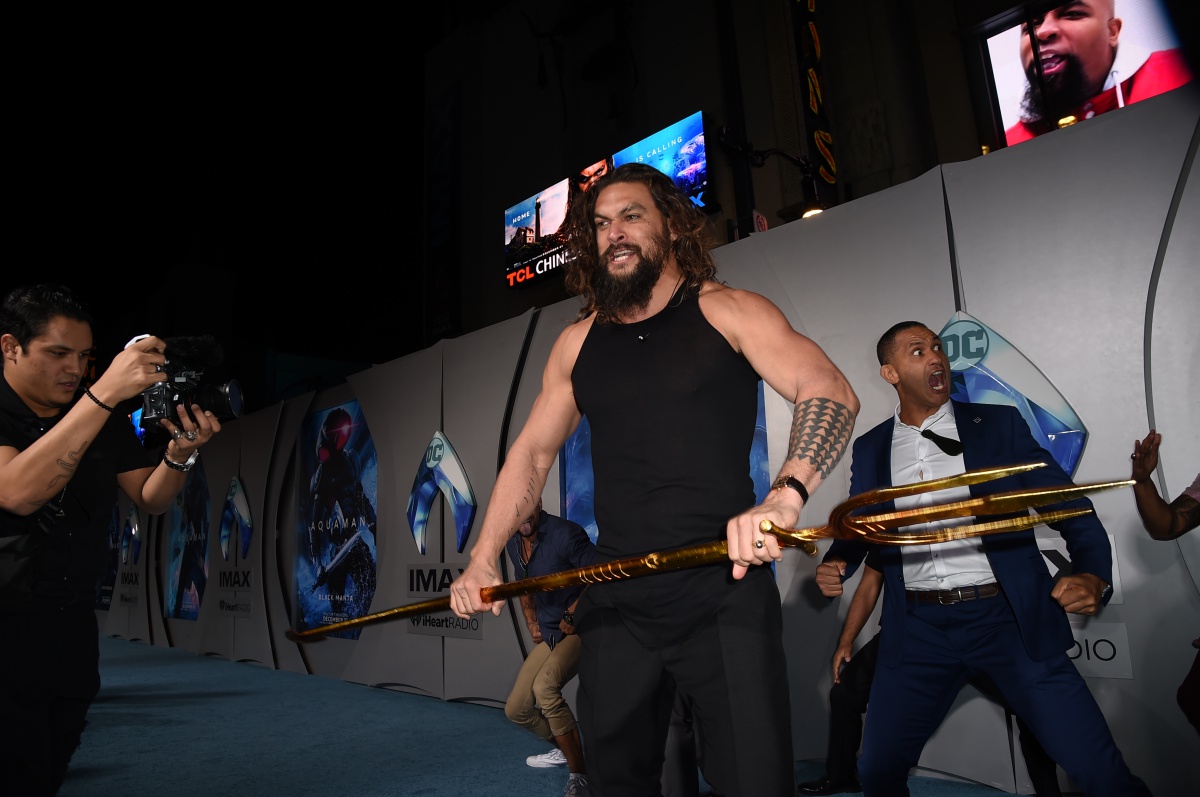Jason Momoa Not Filming Aquaman 2 Because He’s Protecting Native Land, Just Like Aquaman Would


Superhero Jason Momoa has some real-life heroics to do at the moment, protecting sacred Hawaiian land, which is why the followup to the box office success that was Aquaman is currently being slightly delayed.
The text in Momoa’s Instagram post on the subject reads:
“FUCK THIS. And TMT is 4x bigger. Sorry Warner Bros we can’t shoot Aquaman 2. Because Jason got run over by a bulldozer trying to stop the desecration of his native land THIS iS NOT HAPPENING. WE ARE NOT LETTING YOU DO THIS ANYMORE. Enough is enough. Go somewhere else. Repost. This is what telescope construction looks like (Subaru Telescope, 1992). The TMT will be four times larger on unscathed land. We must protect our scared mountain from further desecration. #KuKiaiMauna #WeAreMaunaKea #TMTShutdown”
Momoa, other celebrities like Dwayne “The Rock” Johnson, and Indigenous activists have been protesting the $1.4 billion Thirty Meter Telescope project being constructed atop a volcano in Hawaii, Mauna Kea, that locals consider sacred. According to the Office of Hawaiian Affairs, the mountain is a deeply sacred place that is “revered in Hawaiian traditions,” and it is “regarded as a shrine for worship, as a home to the gods.”
Due to being at such a high elevation with a dry environment and stable airflow, Mauna Kea’s summit has long been considered one of the best sites in the world for astronomical observation. There are already 13 telescopes on the dormant volcano, and in 2009 it was chosen to be the location for the Thirty Meter Telescope because of its elevation and clear skies. The telescope will be 18 stories tall and provide astronomers an opportunity to better observe planets and stars forming, galaxies, and black holes.
Now, I love science and definitely believe in exploration. However, I don’t believe that this needs to come at the expense of indigenous communities and the casual dismissal of their traditions. American scientists have been using Mauna Kea as a place to observe space since Hawaii became the 50th state back in 1959. The problem is that if you know … well, anything about the history of Hawaii’s statehood, it has a lot to do with white Americans wanting to colonize the area and overthrowing the Hawaiians’ monarchy—an action that President Bill Clinton apologized for years later, because the American government overstepped during the annexation.
Of course, places like The University of Hawaii, which holds a lease for the land the telescopes are built on, are trying to handle this in a way that will make everyone happy, but the issue here is larger than just a telescope; it’s about the history of colonization on the island, with the Native population largely ignored and placing the state in a situation where the land is often exploited for science. Right now, the Mauna Kea Science Reserve has 13 observation facilities, each funded by as many as 11 countries.
I think there should be a balance, but the Native population and activists need to be at the forefront. Meanwhile, people like Momoa are Johnson are bringing this to the public forum, and that’s great.
(via Page Six, image: Kevin Winter/Getty Images)
Want more stories like this? Become a subscriber and support the site!
—The Mary Sue has a strict comment policy that forbids, but is not limited to, personal insults toward anyone, hate speech, and trolling.—
Have a tip we should know? [email protected]
